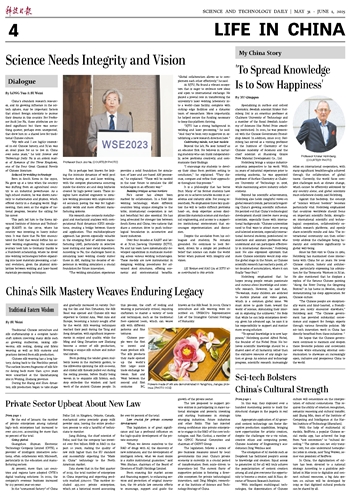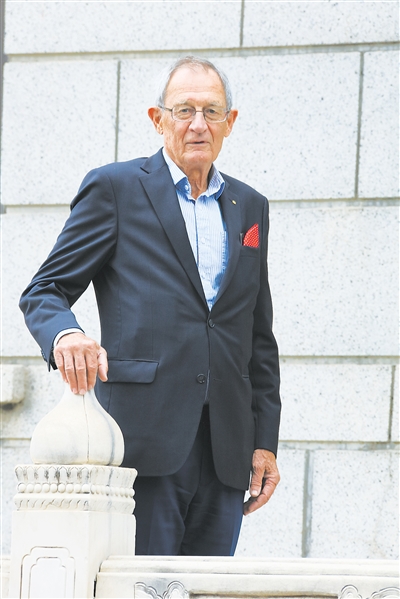
 |
| Professor Krister Holmberg. (COURTESY PHOTO) |
Specializing in surface and colloid chemistry, Swedish scientist Krister Holmberg (79) is an emeritus professor at Chalmers University of Technology and a member of the Royal Swedish Academy of Sciences (the Nobel Prize awarding institution). In 2021, he was presented with the Chinese Government Friendship Award. In addition, since 2017, Holmberg has served as a visiting professor at the Institute of Chemistry of the Chinese Academy of Sciences and the chief scientist at Shandong Ginzre New Material Development Co., Ltd.
Holmberg brings a unique industry-academia perspective to his work. With 24 years of industrial experience prior to entering academia, he was appointed professor of Surface Chemistry at Chalmers University of Technology in 1998, while maintaining active industry collaborations.
Beyond his scientific achievements, Holmberg also holds insightful views on global research trends, particularly regarding China's growing scientific influence. He pointed out that China's technological development should involve more young scientists, especially those with international backgrounds. "Chinese universities need to find ways to attract more young and talented scientists, especially international doctoral students, postdoctoral researchers and assistant professors who understand and can participate effectively in international discourse," Holmberg said. He also expressed optimism that more Chinese scientists would step onto the global stage in the future, as Chinese scientific research has reached a point, after decades of accumulation, where it can finally "bear fruit."
Holmberg emphasized that he hopes young people remain passionate and curious about knowledge and scientific research. However, he said that, "Nowadays, many children are addicted to mobile phones and video games, which is a common global issue. We must strive to guide them toward the world of science, stimulating their interest in exploring the unknown." He feels that while he can help enterprises develop, given his advanced age, he says it is his responsibility to support and mentor more young scholars.
"To spread knowledge is to sow happiness," Holmberg quoted Alfred Nobel, the founder of the Nobel Prize. He believes scientific knowledge should be a shared asset of all humanity, rather than the exclusive resource of any single nation or group. As science and technology progress, scientific research increasingly relies on international cooperation, with many significant breakthroughs achieved through the collaboration of global teams. Currently, the world faces complex challenges such as climate change, which cannot be effectively addressed by any country alone, and global scientists must collaborate closely, said Holmberg.
Against this backdrop, the concept of "science without borders" becomes particularly vital. Holmberg emphasized that countries worldwide should focus on important scientific fields, strengthen international scientific and technological cooperation, collaboratively establish research platforms, and openly share scientific results and data. The international community can then collectively address the challenges facing humanity and contribute significantly to global well-being.
Since his first visit to China in 1984, Holmberg has maintained close interactions with China for 40 years. He loves Chinese culture, history and architecture, particularly expressing his admiration for the Terracotta Warriors in Xi'an. He also mentioned that he displays a replica of the famous Chinese painting "Along the River During the Qingming Festival" in his home in Sweden, clearly demonstrating his deep appreciation for Chinese culture.
"The Chinese people are exceptionally warm and kind-hearted, a friendliness you rarely encounter elsewhere," Holmberg said. "The Chinese government has provided substantial convenience and support for foreign experts through various favorable policies. My sci-tech innovation work in China has directly benefited from these initiatives. "
He hopes that the Chinese government continues to maintain and deepen these favorable policies and convenient services while enhancing external communication to showcase an increasingly open, inclusive and prosperous China to the world.







